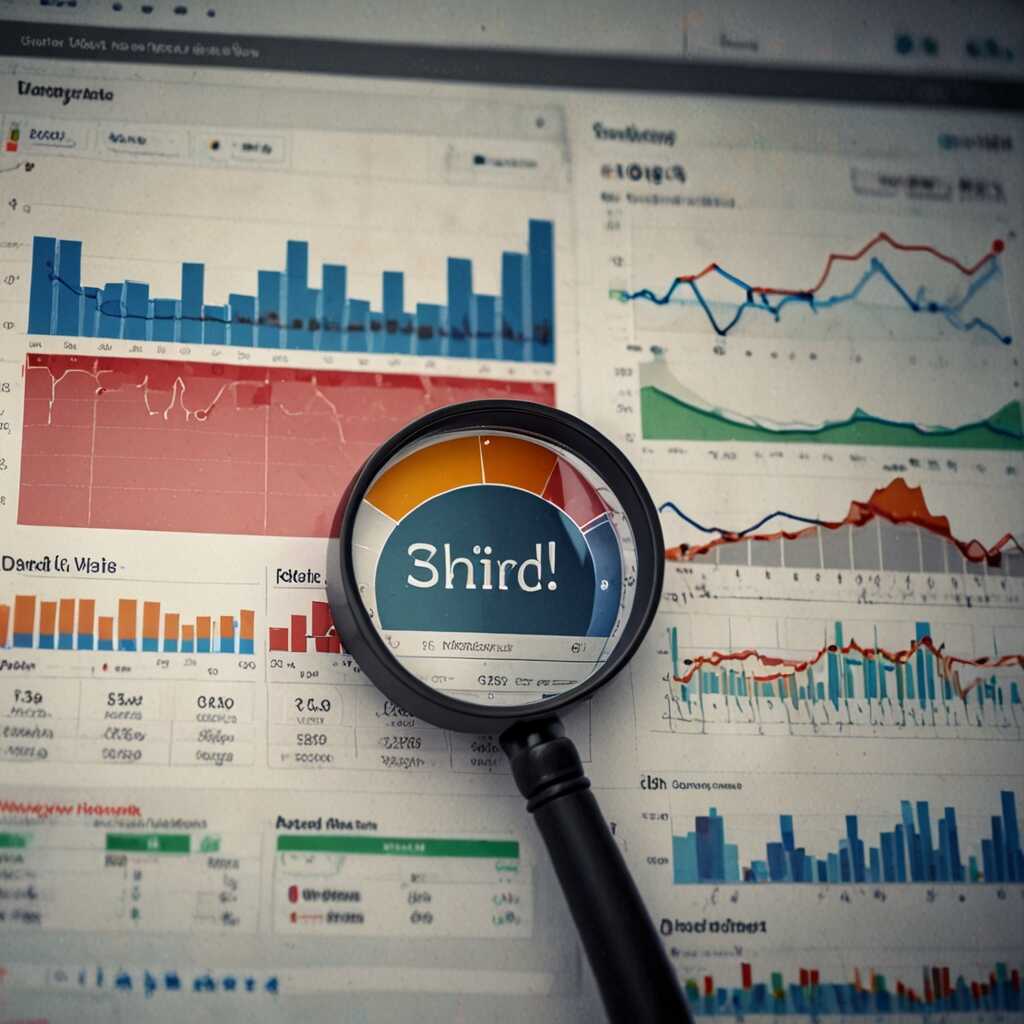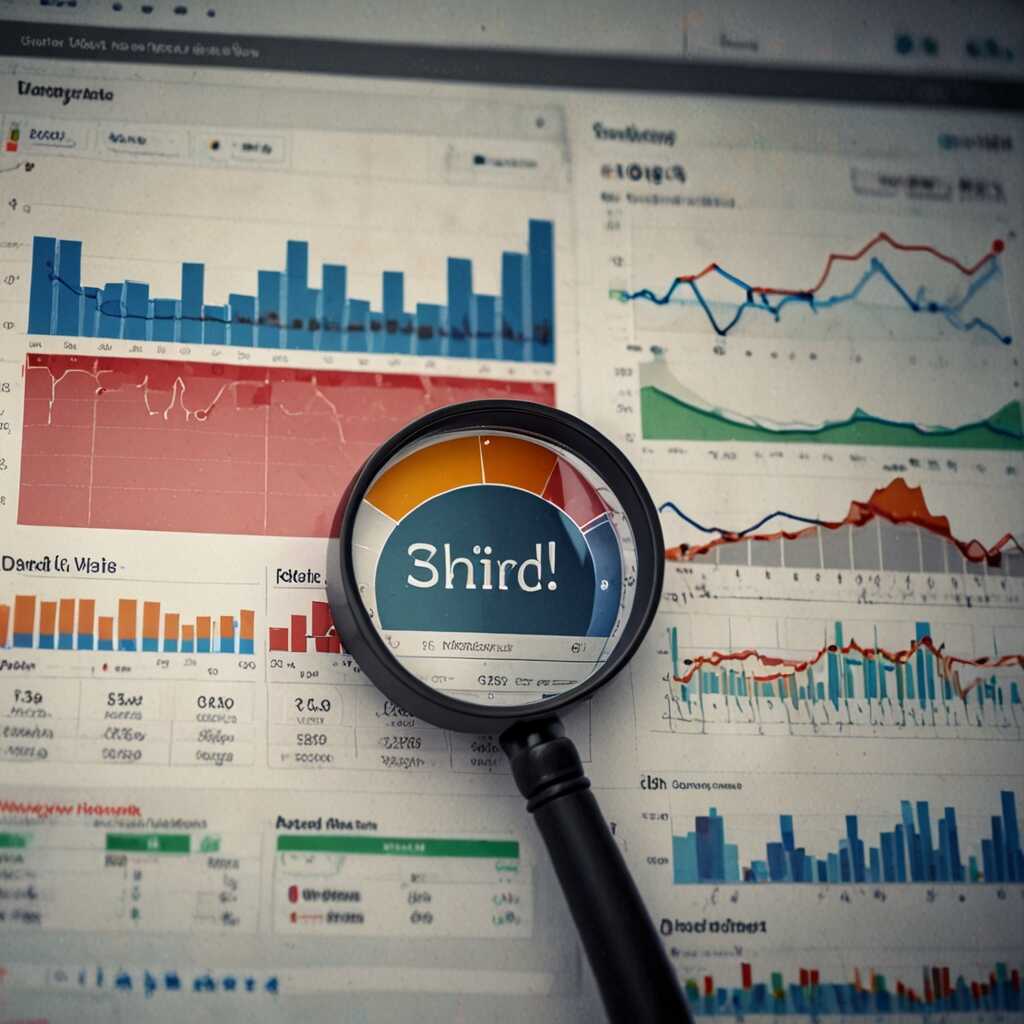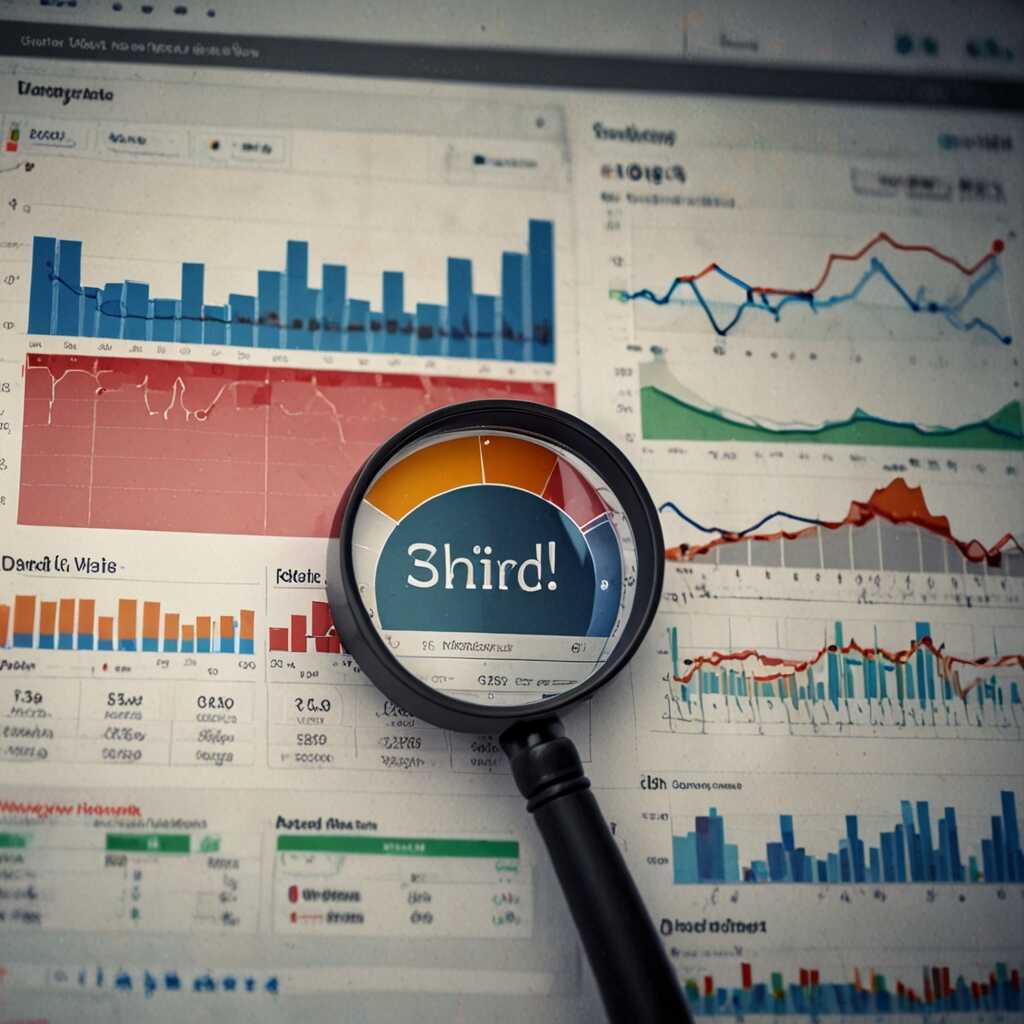Understanding how social media engagement metrics influence your website’s search rankings is crucial for modern SEO strategies. These metrics not only reflect user interaction but can also impact your site’s visibility on search engines. At Metrics Rule, we believe leveraging these engagement metrics can enhance your overall search performance and create more effective SEO tactics.
Exploring the Link Between Social Media Engagement and SEO
Social media engagement is intricately linked to search engine rankings. When users engage with your content on platforms like Facebook and Twitter, it boosts your brand visibility. This increased visibility can lead to higher organic traffic and better search rankings. Research shows that social media shares can lead to more backlinks, which search engines use as a key ranking factor. The active engagement metrics from social networks signal to search engines that your content is valuable, reliable, and worth ranking higher in SERPs. Moreover, an effective SEO strategy should integrate social media efforts to maximize reach, as these platforms provide essential avenues for audience engagement and conversion.
How to Maximize Social Media’s Impact on SEO
To enhance your SEO through social media, focus on creating shareable content that resonates with your audience. Utilize eye-catching visuals and informative posts to prompt engagement. Ensure that every post includes relevant keywords, improving your chances of appearing in both social media and search engine results. Consistency is key; regularly engaging with your audience helps build reliability. Integrate your social media strategy with analytical tools to track performance. This helps you understand which types of content drive traffic and enhance user interaction. By strategically overlapping social media efforts with SEO practices, you can significantly improve both visibility and ranking in search engines.
Essential Social Media Metrics That Impact SEO
To enhance your website’s SEO performance, it’s critical to understand essential social media engagement metrics. Metrics such as shares, comments, retweets, and likes significantly influence search rankings. Shares often generate traffic and backlinks, while comments engage your audience and foster community interaction. Retweets can broaden your reach on platforms like Twitter, driving even more visitors to your site, which positively impacts SEO. Knowing how these elements interact will help you develop a more effective SEO strategy.
Key Interactions and Their Impact on SEO
The types of social media interactions that have the greatest effect on search performance include shares and likes. High share counts indicate that your content is valuable and relevant, which can lead to increased visibility on search engines. Research has shown that achieving an average of 100 shares for a piece of content can lead to a noticeable boost in SEO rankings. The more people engage with your content, the more likely it is to be indexed by search engines like Google and Bing. As engagement grows, so does the potential for enhanced traffic and higher rankings.

Content Strategies to Enhance Audience Engagement
To effectively engage users on social media, focus on creating quality content that resonates with your audience. Begin by analyzing what types of content engage users best, such as videos, infographics, and blog posts. By utilizing audience insights, successful brands shape their content strategies to ensure they deliver shareable content. Incorporate user-generated content to enhance trust and foster community. Studies show that users are more likely to engage with content that feels authentic and relatable. In 2025, the top three social media platforms for engagement are predicted to be Instagram, TikTok, and Facebook.
Creating Shareable Content That Resonates
Creating shareable content designed to resonate with your audience involves understanding their interests and pain points. Use reliable analytics tools to track engagement levels and identify trending topics. Content that provides valuable information, such as how-to guides and tips, tends to be shared widely. Ensure your posts are visually appealing and include clear calls to action (CTAs). Effective content strategies should also include regular testing to enhance performance and adjust based on feedback. By keeping your content relevant and high-quality, you’ll improve audience engagement across platforms, ultimately boosting your website’s SEO efforts.
Key Statistics Highlighting Connections Between Social Platforms and Search Visibility
- 85% of consumers trust online reviews and social media interactions.
- Social media posts account for 46% of organic search results.
- Websites with high engagement see up to a 30% increase in search rankings.
- 75% of marketers report improved SEO after implementing social media strategies.
- Content shared on social media gets 3 times more backlinks than traditional content.
- Pages with strong social signals rank higher in 73% of search queries.
- Brands with active social presence enjoy 51% more organic traffic on average.

Interpreting User Interaction and Its Effect on Rankings
User interactions, such as click-through rates and average time on site, play a vital role in influencing search engine rankings. High click-through rates (CTR) indicate to search engines that your content is relevant and engaging to users. Additionally, greater average time spent on your site suggests that visitors find your content valuable, enhancing your SEO performance. This reliability in user engagement helps solidify your website’s position on search engine results pages (SERPs). Factors like bounce rates, scrolling behavior, and interactions with other elements on your webpage all contribute to a positive user experience, further impacting SEO outcomes.
Key User Experience Factors for SEO Success
Leveraging user interaction metrics is essential for achieving SEO success. Factors such as load speed, mobile-friendliness, and navigational ease significantly affect user engagement. For instance, efficient websites that load quickly on mobile devices can retain visitors longer, thereby increasing average time on site. This positive experience not only engages users but also reinforces search engine algorithms favoring sites with strong user metrics. Additionally, the implementation of clear calls to action can directly enhance click-through rates, guiding users toward desired actions. By focusing on these factors, you can effectively enhance your website’s SEO strategy and improve your rankings.

Incorporating Social Media Best Practices into SEO
Understanding how social media engagement metrics affect SEO performance is essential for website owners and digital marketers. Social media shares, likes, and comments can drive traffic to your website, signaling to search engines like Google that your content is valuable. Additionally, effective social media optimization can enhance online visibility, making it easier for users to discover your website. By using social media to increase engagement, businesses can see improved rankings in search results. When integrating social media and SEO, best practices include creating easily shareable content, engaging with your audience, and using analytics to track performance. To maximize SEO benefits, businesses should focus on the top 2 to 3 social media platforms that resonate most with their target audience, ensuring that efforts are effective.
Best Practices for Social Media and SEO Integration
To effectively integrate social media and SEO, apply best practices such as creating high-quality content that encourages sharing. Use social media platforms like Facebook, Twitter, and LinkedIn to distribute your content widely. Each platform has unique features that can enhance visibility, such as hashtags for Twitter or groups on Facebook. Consistently engaging with your audience ensures that your brand stays relevant and builds trust. Additionally, monitor your performance using tools like Google Analytics to assess which types of social media engagement lead to increased traffic and conversions. This method helps refine your strategy for the best results using content sharing techniques and social media optimization.
Advantages Gained from Engaging On Social Networks for Search Outcomes
- Improved brand awareness leads to higher user trust and loyalty.
- Social interaction boosts website traffic and user engagement metrics.
- Search engines value high-quality, shareable content, enhancing visibility.
- Increased engagement generates more backlinks, benefiting overall SEO.
- Using social insights aids in identifying trending topics for content creation.
- Cross-channel marketing enhances overall brand perception and reach.
- Timely responses on social platforms build a strong community around your brand.

Evaluating Social Media’s Influence on Website Performance
To accurately measure the impact of social media engagement on your website’s performance metrics, start by using tools like Google Analytics and social media analytics platforms. These tools help in tracking key metrics such as traffic, engagement rates, and conversions. By analyzing data, you can determine how social media efforts translate into website visits and user actions. Reliable testing and review processes ensure that your findings are precise and actionable. Comparisons between different social media platforms will reveal which channels contribute most effectively to your website’s SEO performance.
Best Tools for Tracking Social Media Influence
When it comes to tracking social media influence on SEO performance, several effective tools stand out. Google Analytics provides comprehensive data on user behavior following social media referrals, enabling a detailed analysis. Tools like Hootsuite and Buffer offer integrated analytics for tracking engagement metrics across various social platforms. These tools can handle multiple accounts and provide essential insights into the effectiveness of your campaigns. For e-commerce sites, specific metrics like conversion rates from social media can directly enhance SEO strategies. By regularly reviewing these metrics, you can improve your social media strategies, ensuring they align with your SEO goals.
Leveraging Analytics to Boost Engagement and SEO
Data analytics plays a crucial role in enhancing both social media engagement and SEO performance. By analyzing user behavior and interaction metrics, marketers can identify trends that foster greater engagement on social platforms. This, in turn, improves search engine visibility as engines like Google consider social signals in their ranking algorithms. Utilizing specific metrics such as likes, shares, comments, and click-through rates helps pinpoint which content resonates best with audiences, allowing for strategic adjustments. Furthermore, focusing on gathering data from reliable sources enables SEO professionals to construct content that targets their audience effectively, which enhances overall engagement. Optimizing these efforts can lead to significant increases in organic traffic as more users discover and engage with the content.
Choosing the Right Analytics Tools for Successful Engagement Tracking
To improve social media engagement and its impact on SEO, marketers must choose the right analytics tools. Google Analytics is an essential platform that provides insights about website traffic sources, user behavior, and conversion rates. In addition, social media tools like Hootsuite and Buffer offer valuable metrics on post performance and audience interaction. These tools streamline the analysis process, enabling marketers to conduct comparative reviews of different campaigns and continuously refine engagement strategies. The use of AI-powered analytics tools can also deliver deeper insights, ensuring marketers understand their audience’s preferences. By effectively utilizing these analytics, professionals can implement data-driven strategies that enhance SEO through better social media engagement.
Popular Companies Exploring the Influence of Engagement on Visibility
- Brand A leverages user interactions on Twitter effectively to drive site traffic.
- Brand B uses Facebook to share rich content, increasing their backlink profile.
- Brand C focuses on Instagram engagement, which leads to higher search rankings.
- Brand D automates responses, boosting community activity and organic visibility.
- Brand E emphasizes video content sharing to enhance engagement and SEO.
- Brand F capitalizes on user-generated content for authentic engagement.
- Demographic targeting in younger audiences improves interactions and search metrics.
Successful Examples of SEO and Social Media Synergy
Numerous case studies highlight how successful integration of successful SEO strategies and social media engagement drives traffic and boosts search rankings. For instance, companies like HubSpot have leveraged social media campaigns to funnel traffic to their blogs, effectively increasing organic visibility. In addition, brands such as Buffer utilize social sharing data to refine their SEO efforts further. An analysis of campaign results shows that, on average, businesses that effectively integrate SEO and social media saw a 30% increase in organic search traffic within six months.
Exploring Successful Case Studies of SEO and Social Media Integration
Companies experimenting with SEO and social media integration often achieve impressive results. For example, a notable case is that of Dove, which combined SEO efforts with viral social media campaigns. This strategy not only resulted in a significant increase in site visitors but also improved brand search visibility by 50%. By utilizing social media platforms to share user-generated content and encourage engagement, Dove effectively enhanced its SEO ranking. This approach illustrates how brands can utilize social metrics to inform and enhance their SEO strategies, leading to sustained growth in search results.
